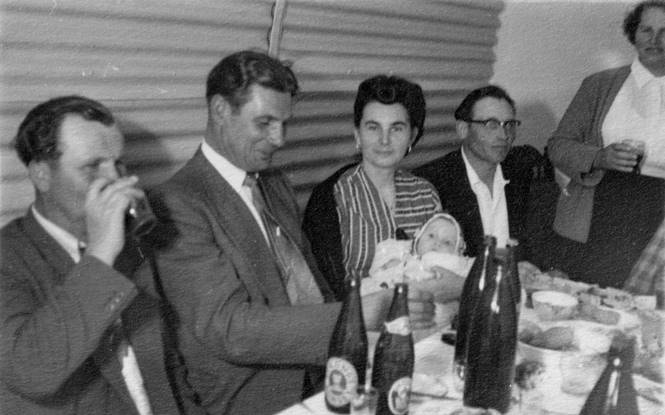Chandler's Ford and Hiltingbury public art

Latest update
Funded by Developer’s Contributions and supported using public funding by the National Lottery through Arts Council England, Eastleigh Borough Council is commissioning public art to celebrate diversity and memorialise the Polish Dependants’ Hostel Camp (pictured) in Hiltingbury.
Following an open call for applications, artist Janetka Platun was appointed to develop a proposal for public art at Hiltingbury Recreation Ground.
Over the last six months, Janetka has spent time meeting with residents of the camp, their children and the wider Polish community to design a meaningful contemporary tribute to their experiences of displacement and resettlement in the UK.
The artwork will consist of three elements: an illuminated sign, the symbolic planting of a Polish Silver Birch tree, and an accompanying plaque about the project and history of the camp.
Wording for the sign will be, ‘There were people at Hiltingbury who had experienced these events’. The phrase is taken from Marion Sobieraj’s book ‘The Story of the Polish Dependants’ Hostel Hiltingbury’ and formatted in the handwritten script of a camp resident; representative of the Polish children who learnt to read and write within the camp, where Hiltingbury Junior School also now stands.
Current pupils at the school were also invited to be part of the project; Year 5 had a workshop with Janetka, learning about the lives of nearly 1000 people who lived in the camp, and the children will join a celebration event when the project is completed later this year.
Delivery of the project is currently subject to planning consent and the planning application no. A/24/98620 will be available to view on the Planning Register.
Background information submitted with the planning application is also available in this downloadable Information Pack.
The history
Prior to becoming the Recreation Ground, the site south of Hiltingbury Road was used by the military as a temporary accommodation camp for Southampton residents displaced by the blitz in 1940 and 1941; for Prisoners of War in 1945; and from 1947 – 1957 for almost 1,00 Polish refugees.
Accommodation comprised mainly of Nissen Huts and during its use by Polish civilians the camp included a church; a nursery, kindergarten and primary school; and Sick Quarters staffed by Polish doctors. Residents worked for a range of local employers including Foster Wheeler’s, Chandler’s Ford Laundry, Price’s Confectionary Bakery, British Rail and Pirelli Cables.
Although Polish traditions and connections were actively maintained throughout the camp, a number of initiatives supported integration with the wider community of the Eastleigh Borough. The S.P.K Ex-combatant Association and the Anglo-Polish Society were active at the camp, children joined cubs, brownies and scout groups, and English families would visit the site to make friends and attend dances and shows.
The artist
Janetka Platun makes art about our collective search for belonging, transient concepts of home and how we deal with loss. She works closely with communities to create public art shaped by their experiences.
“I’m particularly interested in this commission because both my parents are Polish. My father was a Polish soldier who resided at Witley Camp as part of the Polish Resettlement Corps between 1946 and 1949. For this project my approach will be shaped by the stories of the surviving residents of the Polish Dependants Camp in Hiltingbury. The work will draw on the philosophical concept of ‘Saeculum’; the expanse of time during which something is in living memory. I want to create an exceptional way to honour the Polish people who were uprooted and resettled, and who will be remembered through this public artwork.”
Janetka is an Artist Fellow at Queen Mary University of London. She has exhibited extensively and received awards from the Arts and Humanities Research Council, British Council, Leverhulme Trust and Arts Council England. Other recent public art commissions include projects for Ashford Borough Council and D-P-Q; and Cambridge City Council. In 2023 Janetka was LGBTQ+ Artist in Residence with SpudWORKS in the New Forest.
